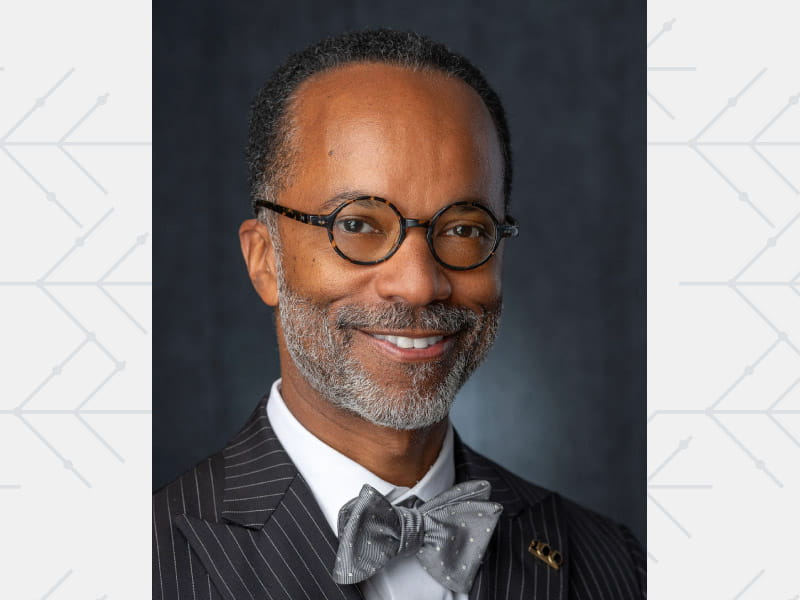Award winner learned about community service at young age

Dr. Reginald Robinson uses analogies to get his message of heart health across to his patients. If they scoff at his suggestions, he may ask them what kind of gas they put into their car.
Surprised, they tell him regular or maybe premium.
"Why not diesel?" he'll ask.
"Doctor," they say, even more surprised, "you know that would mess up my car."
He will nod and look them in the eye.
"Whether it's cigars or fast food or sugar, you're putting the wrong things into your body," he tells them. "Treat your body like your car, and do it before the tires are flat and the carburetor is gone."
Maybe they'll listen; maybe they won't. But he's not giving up on them. He will keep using analogies. He will use tough love. He will talk to them without talking down to them. He will tell them, in their churches, on local radio stations or on the TV news shows they watch, that 80 percent of the conditions he sees can be modified by lifestyle.
This is his mission, one that runs deep.
"Cardiovascular disease is the leading cause of death," Robinson said. "If I can make it simple for people who don't understand and make them aware, that's what I want to do."
Robinson will be honored Thursday, May 2, in the AHA's online National Volunteer Awards ceremony, from 6 to 8 p.m. Central.
With an undergraduate degree from Morehouse College and a medical degree from Howard University College of Medicine, Robinson is following the tradition of service these historic Black colleges instill into their students.
"It's expected that you'll use your degree to help your community," he said. "It's drilled into you."
Robinson graduated from Morehouse in 1991, the same year he lost his mother to lung cancer and a brother to HIV. With too much going on to even think about medical school, Robinson moved to New York to work with his uncle, a psychiatrist.
"I looked up to him and how he treated patients, including kids in Harlem," Robinson said. "I thought, 'Maybe I can do something like that.'"
When he started medical school, he perpetuated the caring but not the field, opting for cardiology because of the high incidence of heart disease in the Black community. (Black people are 30 percent more likely than non-Hispanic whites to die from heart disease.) He decided against his first choice, cardiac surgery, because "by the time people get to that point, they've already had the worst outcomes."
Plus, he wanted to connect to people in the Black community.
"Most of the African American patients I see have probably never seen professionals who look like they do," Robinson said.
Early in his career, he participated in health fairs at Black churches. That's where he became connected to the American Heart Association. Twenty years later, Robinson has just finished his term as president of the Eastern States Board of the AHA and is past president of the AHA's Greater Washington Region Board.
Dr. Robinson is an advocate and champion for heart health. He stands behind the AHA's legislative priorities and connects with policymakers in DC. He has been a part of major events like last year's Congressional fly-in that supported nutritional security programming in the Farm Bill as well as access to AEDs.
As a trusted voice, he consistently champions the American Heart Association's mission, engaging diverse audiences, including external organizations like the Links Incorporated, the Association of Black Cardiologists and BlackDoctor.org.
"The association had a platform of health equity before it became a catchphrase," he said. "Your ZIP code can impact your health – not just how you eat and how sedentary you might be, whether you're living in squalor or where air quality might not be good. Or maybe you live in a food desert where it's hard to get fresh foods, or somewhere you're afraid to go outside and walk."
Robinson talks to patients as if they're family members.
"This is a team sport," he reminds them. "I can't do it without your participation. There is no magic pill."
He considers himself a positive person, but he gets frustrated when patients keep making the same negative choices. Yet they return to him, often referring friends and relatives. He also counts former professors among his patients.
"Those referrals tell how much they trust you," said Robinson, who makes a point before he heads home for the day to call patients who might be awaiting test results or who are nervous about their condition.
"I am humbled and gratified."
He never tires of talking to patients about heart health. Because – like the woman in her 70s who told Robinson she listened to him, lost 20 pounds and feels so much better – they are listening.





